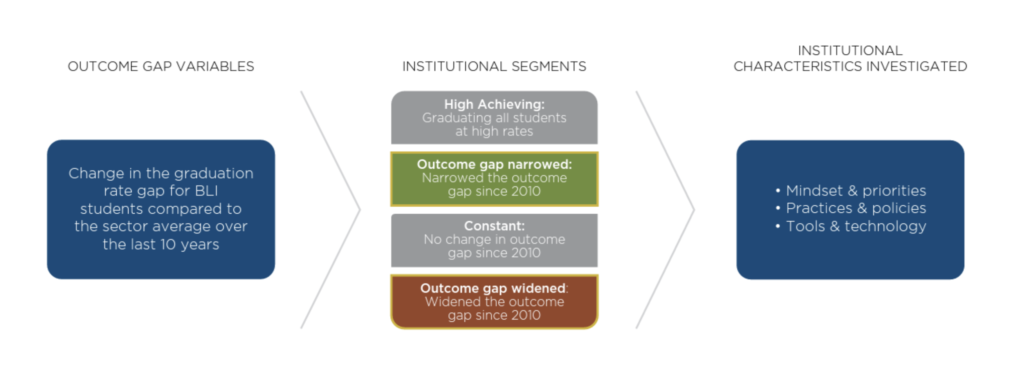Time for Class 2025: Empowering Educators, Engaging Students
June 11, 2025 PapersInstitutions Rebalance Human Connection and Digital Innovation in Higher Ed Tyton Partners, with support from the Gates Foundation…
Driving Toward a Degree is a research collaborative which helps institutions evolve their student supports.
In this year’s research, we designed a methodology to measure progress towards equitable academic outcomes by race and ethnicity, represented by data on how the needs of Black, Latinx, Indigenous (BLI) groups, and students with financial needs differ from those of White students. The data also reflects how the scaled implementation of certain advising practices and technologies plays a role in closing gaps in graduation rates by race and ethnicity.
We frame our work around an academic outcome gap using the methodology we developed to include historically underserved minorities in higher education as part of the norm (rather than solely White students).

Leveraging this new segmentation based on outcome gaps, we interrogate mindset, practice, and technology implementation data from Driving Toward a Degree to see if we can identify key areas of investment that may drive differences in progress towards closing graduation rate outcome gaps for Black and Latinx students.
We find that mindset – i.e., attitudes about commitment to equity –is consistent across the outcome gap narrowed versus outcome gap widened institutions in our sample set. Both types of institutions believe equity is a priority in the design of their advising practices and believe that technology has a role in creating more equitable academic outcomes for BLI students and those with financial need.
In contrast, we find that institutions with narrowed outcome gaps have statistically significant differences in caseload numbers (and reported caseload manageability), and deployment of select advising technologies compared to institutions that widened their racial and ethnic outcomes gaps over the last decade. Specifically, the implications of these findings for the advising field are far-reaching:
Our work has many implications for the advising ecosystem: